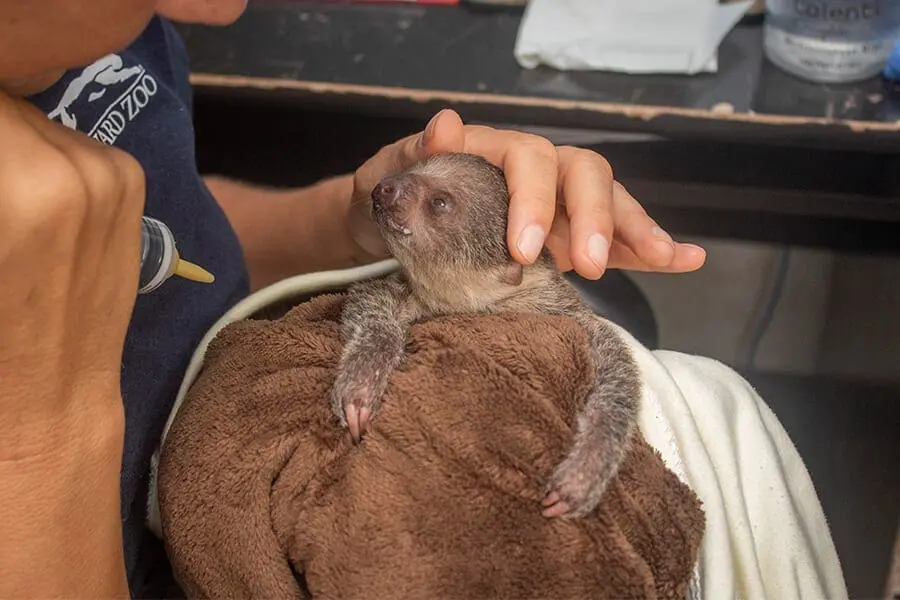

Did you know that baby sloths have to be hand-fed every two and a half hours?
Following the pandemonium of our first sloth baby, we thought it might be a good time for a reminder of why animals like sloths should not be kept as pets. Much like how you could have “puppy fever” but know that you do not have the resources to care for a puppy, those with “sloth fever” should understand that they may not have the resources to care for a sloth.
Sloths are wild animals. Though they may appear just as endearing as our domestic pets, sloths maintain their natural instincts. Generally, sloths do not like to be pet, groomed or bathed. (Here at the Zoo, we work carefully to accustom our sloths to human contact so that our keepers and veterinary staff can provide the best care for these creatures.)
They often don’t show obvious external signs of stress, either. Their natural response to fear or danger is to hold still, so it can be very difficult to tell when a sloth is in distress.
Sloths are known for their lengthy claws, which are sharper than they look. They have surprisingly large teeth, which can inflict serious injury if the sloth is scared or irritated.
There are regulations. Every state has its own set of laws regarding which animals can be kept as pets. Though some states do not require permission to keep sloths as pets, others mandate that you obtain a special permit.
Sloths have adapted to a specific environment. A considerable amount of money would have to be spent to be able to recreate a comfortable and appropriate environment for a pet sloth. They have adapted to a specific type of environment, as they tend to hang high in trees in warm, wet rainforests. Sloths also have a very low body temperature and cannot tolerate the cold.
It isn’t just fun and games. Our new baby sloth requires round-the-clock care. This includes 30-minute bottle-feeding sessions every two and a half hours, even in the middle of the night. Sloth young need to be bottle-fed for up to six months and aren’t fully independent until at least a year. Do you have that kind of time on your hands? And adult sloths require a special diet because of their complex digestive system.
Sloths can live up to 40 years. Consider that if you lived for 80 years and took in a pet sloth, you would spend half of your life caring for it. There is also the cost of veterinary expenses and special dietary needs.
As adorable as sloths are—especially babies—these furry creatures should not be kept as pets. But you can get your full share of sloth cuteness by following the #SlothBabyChronicles hashtag on social media!